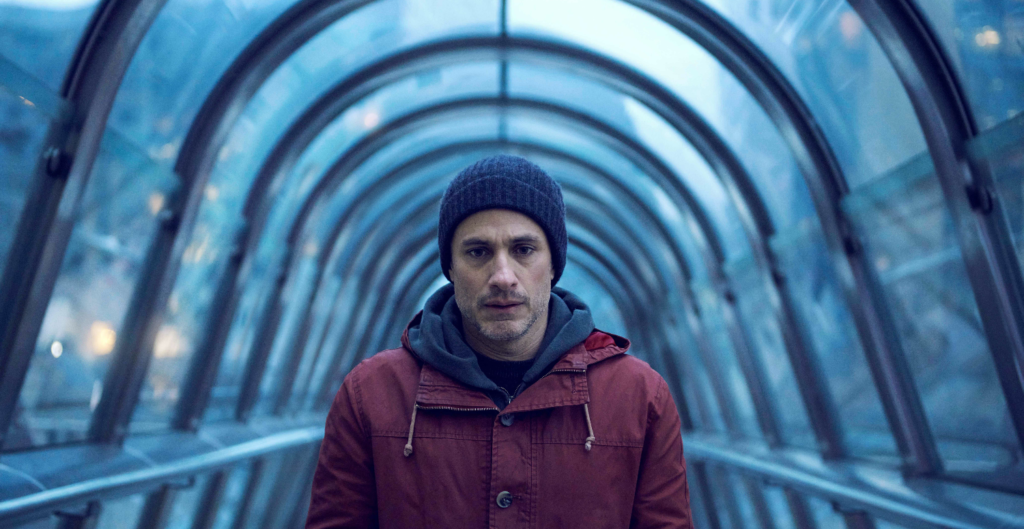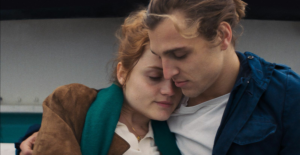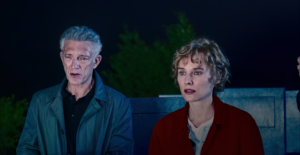Another End
2024/2025
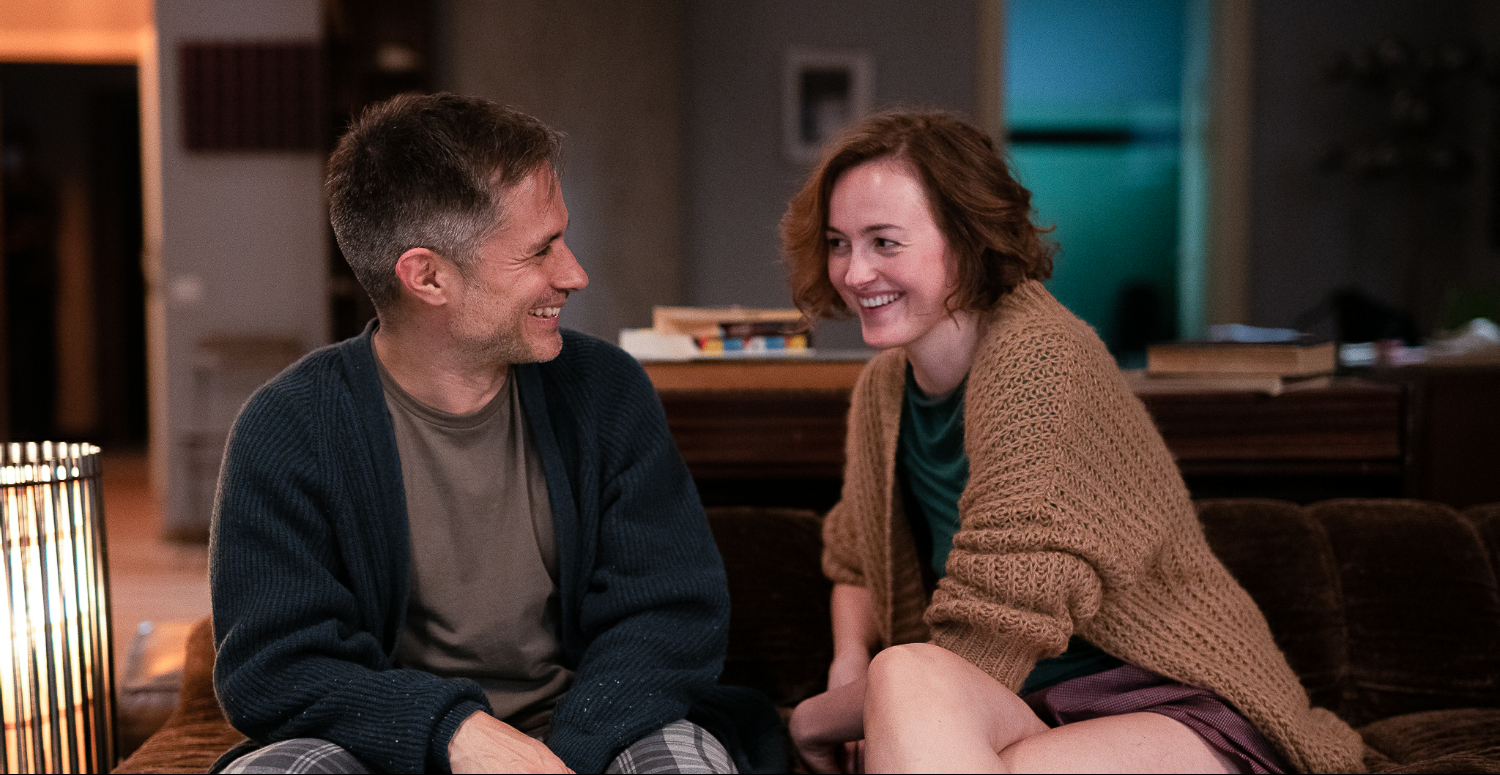
FR EN
Dès ses premières minutes, « Another End » nous happe et nous surprend avec une scène d’introduction somme toute banale qui bascule progressivement dans un registre bien différent de nos premières impressions jusqu’à conclure cette séquence d’introduction sur une scène surréaliste dans un tout autre genre et style. Tourné en anglais et en espagnol, le second film du scénariste et réalisateur italien Piero Messina après « L’Attente » (2015), nous entraîne en effet initialement sur une trajectoire familière pour peu à peu dévier et questionner notre sens de l’humain à travers une étonnante et troublante exploration du deuil et du déni. C’est une fable philosophique sur notre solitude face à la mort et notre propension désespérée – et pourtant très humaine – à vouloir lutter contre les lois de la nature, qui nous plonge dans l’océan d’émotions contradictoires d’un protagoniste apathique confronté à ses désirs et son égoïsme …
Le film met en scène exclusivement les points de vue de son protagoniste et de sa sœur, soit uniquement des points de vue endeuillés, délaissant volontairement le reste de la société en hors-champ à la fois parce que le deuil est envahissant, mais aussi parce que « Another End » est le récit de ceux qui restent (à l’image de son second titre suggéré). C’est un film qui interroge ce que c’est qu’aimer à travers ou au-delà d’une présence charnelle, questionnant la relation que l’on peut tisser avec une âme en sursis. La réflexion se porte alors d’une part sur l’exploitation et la marchandisation du corps, mais aussi et surtout sur l’acceptation du deuil en prenant le temps de pouvoir dire adieu. En cela, l’histoire est un peu une forme de kintsugi à l’échelle du couple où petit à petit ce qui semblait brisé semble se reconstituer au gré d’une complicité faussée par avance. En somme, c’est un conte d’abord déroutant qui laisse son spectateur assembler progressivement son puzzle narratif, mais finalement très riche aussi bien dans le fond que dans la forme.
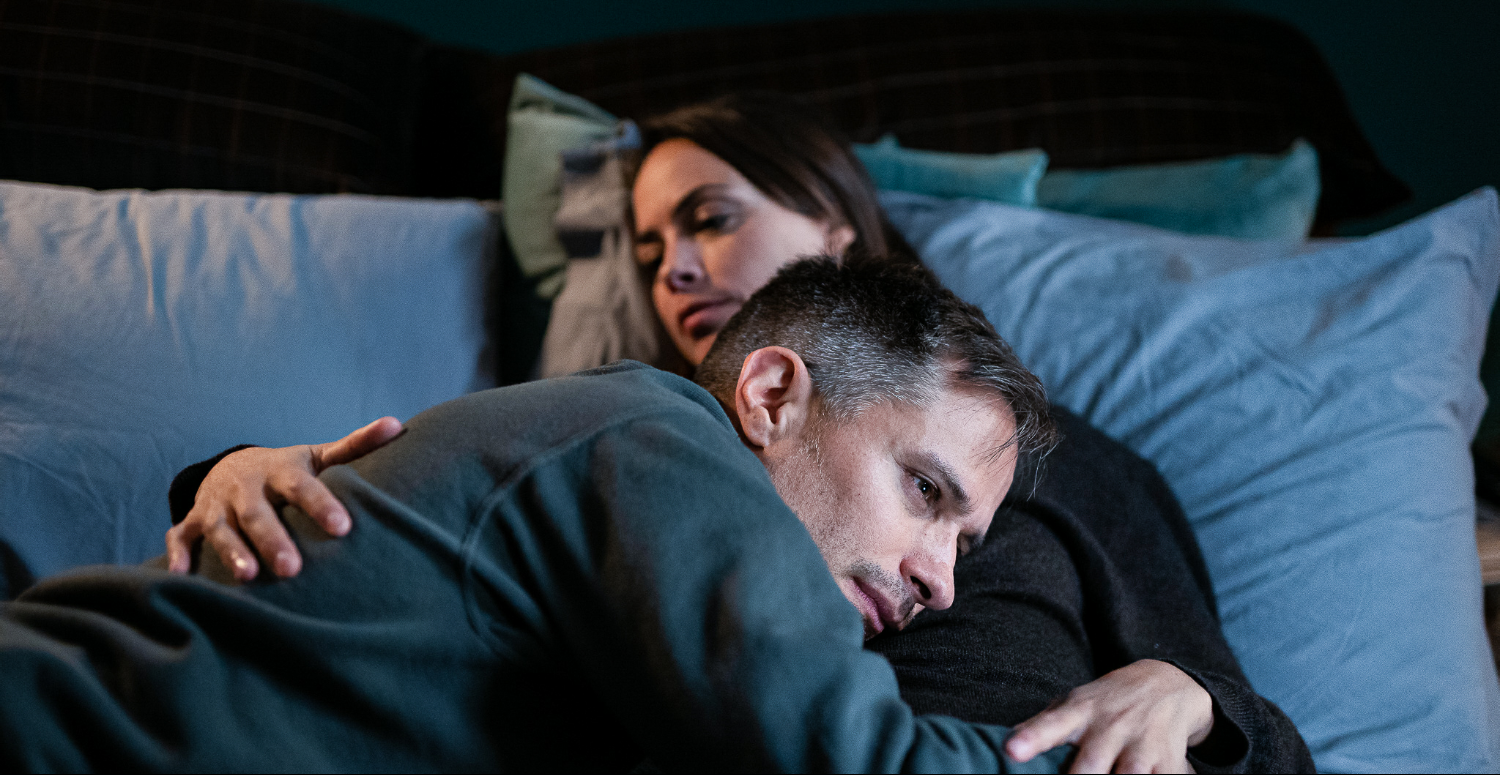
Dans les décors d’une ville d’acier et de verre, la mise en scène minimaliste dégage ainsi une atmosphère à la fois froide et apaisante, comme un étrange rêve éveillé dont les musiques électro aux voix envoûtantes (du réalisateur et de la chanteuse Emika) viennent nous hypnotiser. La photographie participe de plus à la création de ce monde avec de superbes cadrages et un jeu d’ombres très à propos pour un film où les personnages ne peuvent tout s’avouer, d’autant que l’opposition entre les plans de pénombre et ceux éclairés (ou suréclairés) reflète la dualité des points de vue entre un frère et une sœur ne vivant finalement plus dans le même monde. Le jeu délicat du Mexicain Gael Garcia Bernal – tout en intériorité – et de la Norvégienne Renate Reinsve – dans une incarnation énigmatique d’un double rôle – offre des moments de douce et cruelle mélancolie aux côtés notamment de la Française Bérénice Bejo dont le personnage étonnamment fonctionnel se révèle finalement fondamental.
Raphaël Sallenave
From the very first minutes, “Another End” takes us by surprise with a banal opening scene that gradually shifts into a register quite different from our first impressions, until it culminates in a surreal scene in a completely different genre and style. Shot in English and Spanish, Italian writer-director Piero Messina’s second feature, following “The Wait” (2015), initially takes us on a familiar trajectory, only to gradually veer off course and question our sense of the human through an astonishing and troubling exploration of grief and denial. It’s a philosophical fable about our loneliness in the face of death and our desperate – yet very human – tendency to want to fight against the laws of nature, which draws us into the ocean of conflicting emotions of an apathetic protagonist confronted with his own desires and selfishness…
The film focuses exclusively on the points of view of its protagonist and his sister, that is, only on the bereaved, deliberately leaving the rest of society out of the picture, both because grief is overwhelming, but also because “Another End” is ultimately the story of those who remain (as its suggested second title indicates). This is a film that questions what it is to love through or beyond a carnal presence, questioning the relationship we can forge with a soul on probation. The film then explores not only the exploitation and commodification of the body, but also, and above all, the acceptance of grief by taking the time to say goodbye. In this respect, the story is a kind of kintsugi on the couple’s scale, where little by little what seemed broken seems to be rebuilt along the lines of a bond falsified in advance. All in all, it’s an initially puzzling tale that leaves the viewer to gradually piece together its narrative puzzle, but ultimately very rich in both substance and style.

Set in a city of steel and glass, the minimalist staging creates an atmosphere that’s both cold and soothing, like a strange waking dream, hypnotized by the haunting electro music (with vocals from the director and singer Emika). The cinematography also contributes to the creation of this world, with beautiful framing and a shadow palette very appropriate for a film in which the characters can’t admit everything to each other, especially as the opposition between dark and bright (or over-lit) shots reflects the duality of perspectives between a brother and sister who are essentially no longer living in the same world. The delicate acting of Mexico’s Gael Garcia Bernal – full of introspection – and Norway’s Renate Reinsve – in an enigmatic portrayal of a double role – offers moments of gentle, cruel melancholy, alongside France’s Bérénice Bejo, whose surprisingly functional character ultimately proves fundamental.
Raphaël Sallenave
